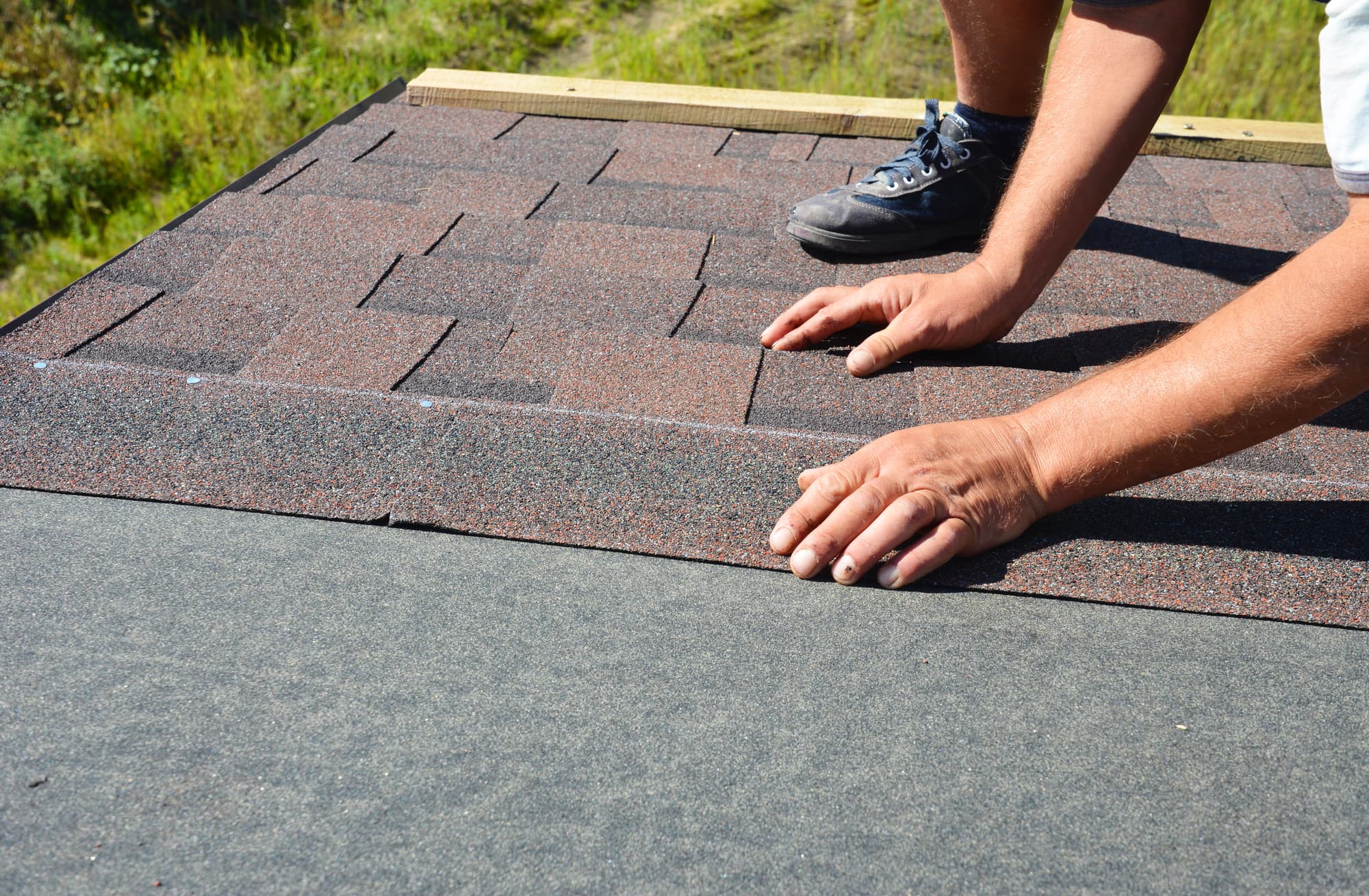The roofing industry has evolved over the years, with many roofing options available to homeowners and businesses alike. One popular choice is the asphalt shingle, renowned for its durability, aesthetic appeal, and versatility.
Whether renovating an old property or exploring options for a new one, understanding the wide variety of roofing materials is crucial. In this eXp guide, we dive into the world of asphalt shingles, discussing their composition, advantages, and drawbacks, ensuring you make an informed decision for your roofing needs.
What Are Asphalt Shingles?
Asphalt shingles are roofing materials composed of a base mat—either fiberglass or organic—coated in asphalt and sprinkled with mineral granules. This composition provides durability and protection for residential and commercial structures, ensuring a beautiful roof that matches the elements.
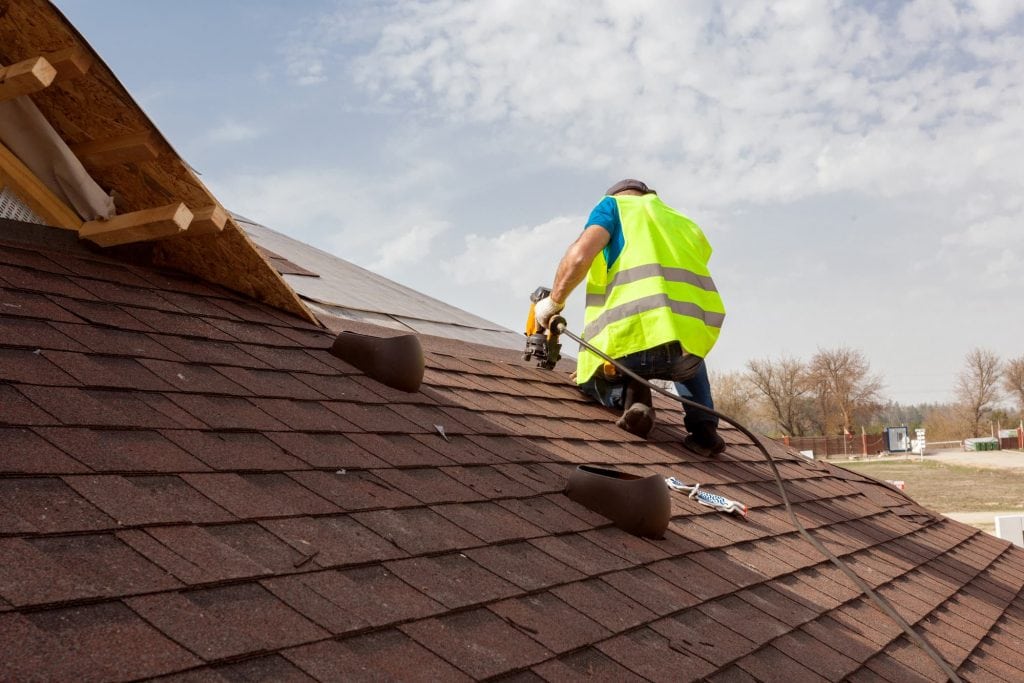
Types of Asphalt Shingles
Different types of asphalt shingles cater to different needs and aesthetic preferences.
- Standard three-tab shingles offer a uniform appearance and are often the cheapest.
- Architectural asphalt shingles, like dimensional or laminated shingles, are a step up, adding depth and texture to the roofing appearance. They often come in a wider variety of colors, making it easier for homeowners to find a shingle color that complements their home’s exterior.
- Luxury or designer shingles are for those looking to make a statement with their roofing. Industry leaders like Owens Corning and GAF Timberline provide high-end asphalt shingles that can mimic the appearance of wood shingles or even clay singles. These luxury types are among the more expensive shingles but are often backed by lifetime warranties, ensuring that the additional costs are offset by longevity and superior impact resistance ratings.
Advantages of Asphalt Shingles
Asphalt shingles have become an increasingly popular choice in the roofing industry, and for a good reason. They offer many advantages, catering to homeowners with varying needs and preferences.
Whether it’s the aesthetic versatility or the durability they bring to the table, asphalt shingles have captured the hearts of many.
Cost-Effectiveness
One of the standout qualities of asphalt shingle roofs is their affordability. When you compare the average cost of asphalt shingles with traditional roofing materials like slate shingles or wood shakes, it’s clear they offer a more budget-friendly option. Whether you opt for the standard three-tab shingle or the more intricate architectural shingles, they remain cost-effective.
The installation process of asphalt shingles is less labor-intensive than options like natural slate or metal roof shingles. This translates to reduced labor costs. Moreover, there’s no need for specialized equipment or techniques, making the overall installation more budget-friendly.
Over time, maintenance and repair expenses also favor asphalt roofing shingles. They require minimal upkeep, further solidifying them as one of the most affordable options in the market.
Versatility and Aesthetics
The aesthetics of asphalt shingles have evolved significantly over the years. Today, roofing manufacturers offer various styles, color options, and designs. Homeowners can choose from various styles, from the traditional three-tab asphalt shingles to luxury asphalt shingles.
TAMKO Heritage and other premium shingle manufacturers have expanded their range to include designs that mimic the look of wood, clay shingles, or even slate tiles. This variety ensures that homeowners can enhance their curb appeal without compromising quality.
Ease of Installation and Repair
Beyond the aesthetics and cost, the practicality of asphalt shingles is a major plus. They are lightweight, making them easier to handle and install. Professional roofing contractors often favor them due to the simplicity of laying individual shingles on a roofing square.
Damage to roofs is inevitable from strong winds, hail, or wear and tear. Finding a replacement shingle is typically easy if any damage occurs, especially with popular types like three-tab shingles or laminate shingles.
Additionally, finding a match for repairs is relatively easy. Individual shingles can be replaced without overhauling large sections of the roof.
The abundance of roofing contractors familiar with this type of shingle ensures that homeowners will find skilled professionals for installation and repair.
Durability and Longevity
While asphalt shingles are affordable, they don’t compromise quality and durability. Created with layers of asphalt and often reinforced with a fiberglass mat, these shingles are designed to withstand strong winds, cold weather, and even harsh weather conditions. Premium shingles have enhanced wind resistance ratings, ensuring longevity amidst extreme climates.
Well-maintained asphalt roof shingles can last between 20 to 30 years, offering excellent value for money. Asphalt provides superior protection than other types of roof shingles like wood shakes, which can degrade faster and require more maintenance, or metal shingles that might dent.
Moreover, many modern shingles have features like algae protection and impact resistance, further prolonging their lifespan and ensuring the roof remains pristine.
Drawbacks of Asphalt Shingles
While asphalt shingles undeniably offer advantages, like all materials, they have limitations. Understanding these drawbacks lets homeowners make well-informed decisions, ensuring that their roofing choice aligns with their needs and circumstances.
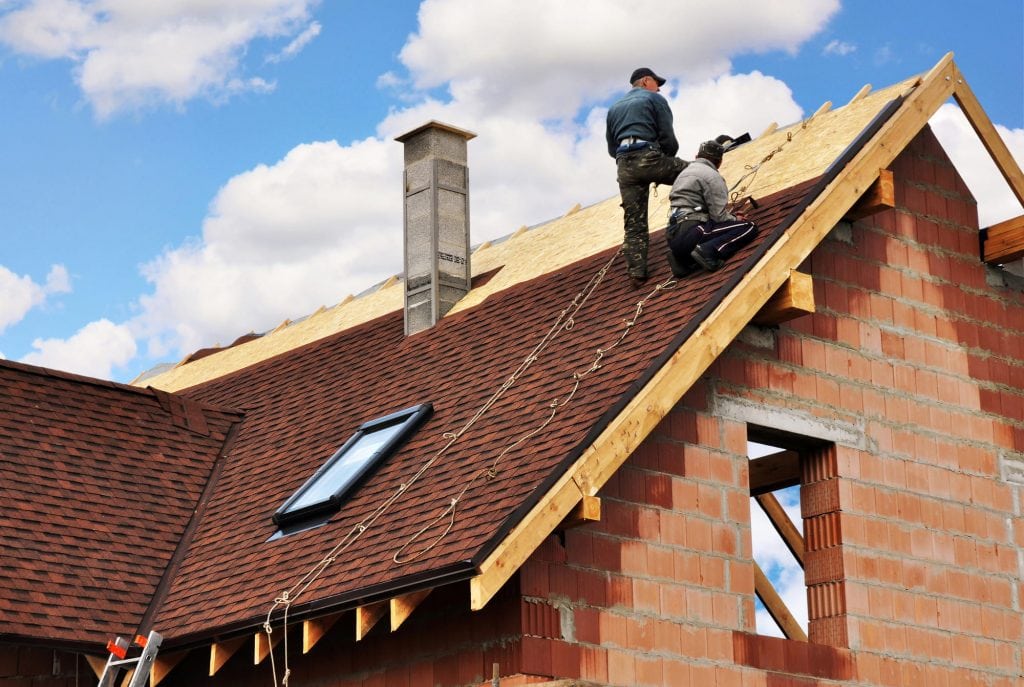
Susceptibility to Extreme Weather
Every roofing material reacts differently to varying weather conditions, and asphalt shingles are no exception.
Prolonged exposure to extreme heat can cause asphalt shingles to shrink and become pliable, potentially causing them to blister. Sunlight can also lead to fading, impacting the roof’s aesthetic appeal over time.
Conversely, asphalt shingles can become brittle in extreme cold, leading to cracks and breakage. Shingles can get lifted, torn, or even blown off in areas with high wind uplift or where miles-per-hour wind levels are elevated. Standard shingles, in particular, might not offer the same wind resistance as some durable roofing materials.
While some shingles are impact-resistant, not all can handle significant storm damage without being degraded. These damages might lead to premature decay of the shingle strip.
Avoid Potential Damage
To avoid potential damage, homeowners should consider their local climate when selecting the type of asphalt shingles. Investing in architectural roof shingles might be better, often offering more resilience than standard shingles. Make sure to consult with a reputable roofing company before making a decision.
Regularly inspecting the roof, especially after extreme weather events, can help in the early detection of damage, allowing timely repairs. Moreover, a high-quality underlayment can provide an additional barrier against water infiltration, especially if shingles are damaged by wind or hail.
Ensuring proper installation, including appropriate nailing and sealing, can enhance the wind resistance of asphalt shingles. Adhering to industry standards during installation can also eliminate some of these risks.
Environmental Considerations
There’s no denying the popularity of asphalt shingles, given their wide range of colors and ability to complement almost any architectural style. However, the environmental concerns associated with them can’t be ignored.
The production process of asphalt shingle roofing is energy-intensive, and once its life ends, it contributes to landfill waste. While some can be made of recycled materials, not all asphalt shingles are recyclable.
The production of asphalt shingles consumes energy and resources, leading to carbon emissions and other environmental hazards.
Alternatives for the Environmentally Conscious
For the environmentally-conscious homeowner, there are alternatives. Some regions have facilities that recycle old asphalt shingles, repurposing them for road construction or other uses.
Additionally, metal roofing shingles are often made from recycled materials and can be recycled again at the end of their lifespan. Solar shingles, on the other hand, provide roofing protection and harness solar energy to generate clean energy. Composite and rubber shingles, made from reclaimed materials, are another eco-friendly option.
Moreover, to mitigate the heat absorption of dark asphalt shingles, homeowners can opt for reflective coatings that reduce the urban heat island effect.
When considering the environmental impact, homeowners should inquire about the specific shingle type and whether they contain recyclable materials. Some brands might offer eco-friendly choices or have initiatives to reduce asphalt shingle waste.
Comparison of Asphalt Shingles With Other Roofing Options
While asphalt shingles remain popular, weighing them against other roofing options available is essential to finding the right fit for your home.
Metal Roofing
Metal roofs, like aluminum, copper, and steel, are known for their durability. While asphalt shingles have a limited lifetime warranty, metal roofs often last 40 to 70 years, sometimes even outlasting the house! However, this longevity does come at a higher initial cost.
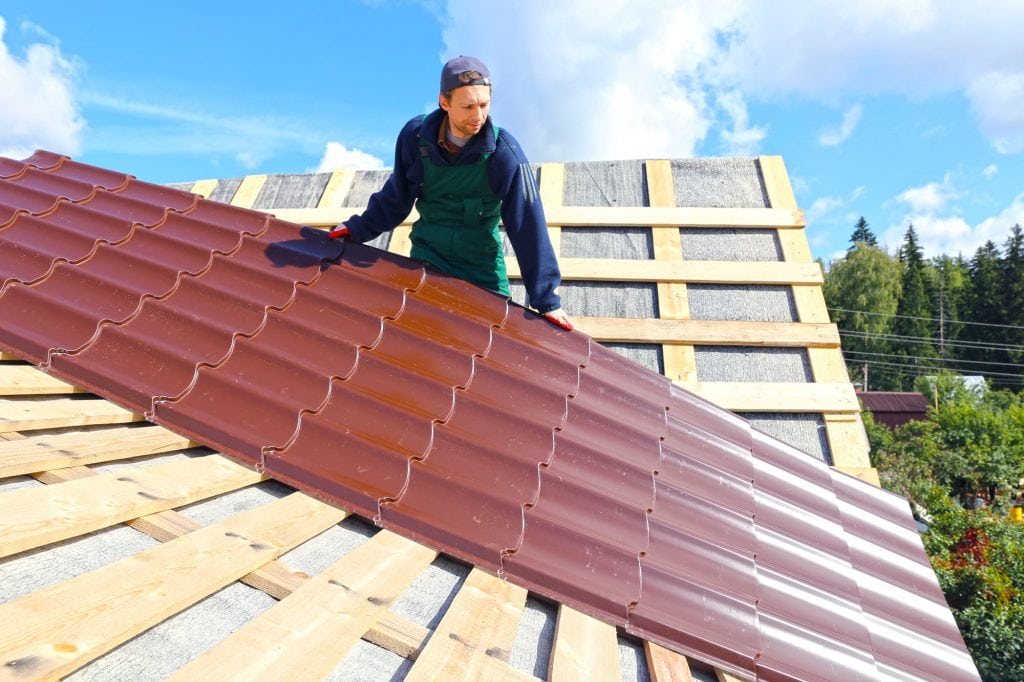
Regarding energy efficiency, metal roofs are excellent at reflecting sunlight, which can reduce energy costs during hot months. Aesthetically, metal roofs offer a sleek, modern look, contrasting the traditional appearance of asphalt shingles. However, they can be noisier during rain and hail.
One potential downside to metal roofs, especially aluminum shingles, is their susceptibility to dents. Yet, their resistance to algae growth, which can cause black streaks on asphalt shingles, is a notable advantage.
Tile Roofing
Tile roofing, often made from concrete tiles or clay, is known for its durability and classic appearance. Tile roofs have a lifespan of over 50 years, rivaling metal roofs. Their weight and sturdiness make them ideal for specific climates, particularly high winds or wildfires.
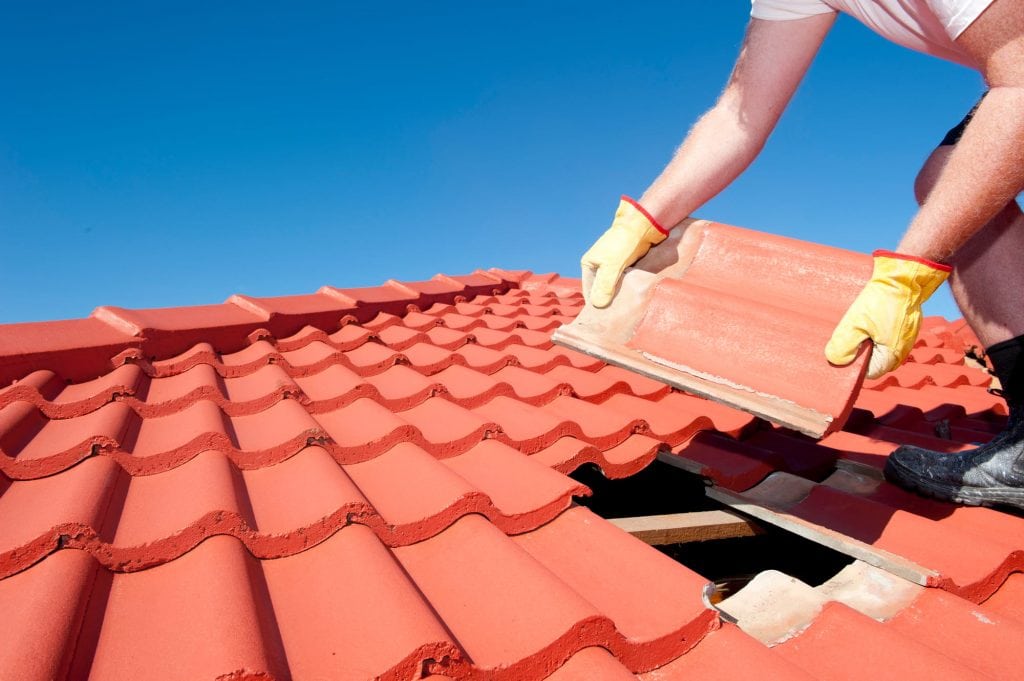
However, tile roofing is more expensive than asphalt shingles and requires sturdy structural support due to its weight. Maintenance for tile roofs can also be higher, given the potential for individual tiles to crack.
Aesthetically, tile roofs offer a Mediterranean or Spanish flair, making them an excellent choice for homes with such architectural styles.
Slate Roofing
Slate roofs, made from natural stone, are the epitome of luxury when it comes to roofing materials. They are known for their premium quality and can dramatically elevate your home’s aesthetics.
These roofs have a natural resilience, often outlasting the homes they’re installed on, making them one of the most durable roofing materials available, with a lifespan of 100 years.
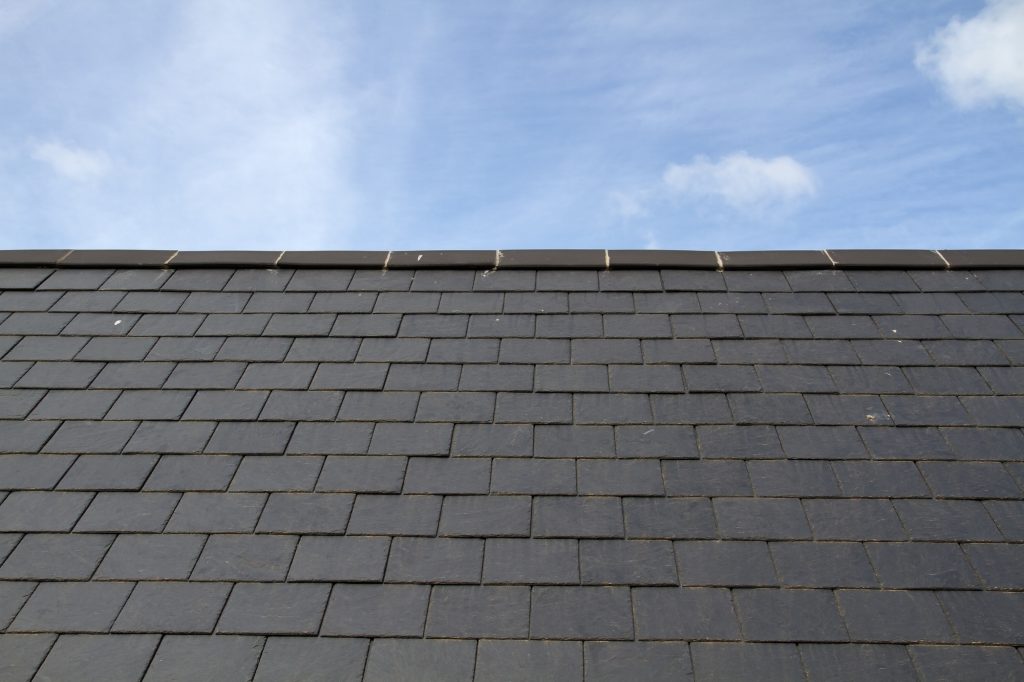
In terms of cost, slate is among the most expensive roofing materials on the market. The installation process is more complex than asphalt shingles, requiring skilled craftsmen. This increases both material and labor costs. Additionally, similar to tile roofing, the weight of slate requires a robust structural foundation.
Overall, slate roofs are a significant investment, so weigh the pros and cons before making a decision.
Key Takeaways
Asphalt shingles have cemented their place as a staple in the roofing industry due to their cost-effectiveness, versatility, and ease of installation. However, homeowners have several other options, from the modern appeal of metal roofs to the classic elegance of slate and tile roofing.
Given the range of choices, you must consider each option’s long-term implications, maintenance needs, and initial costs. If confused, consider contacting a local eXp agent for guidance and expert advice. An agent can also help you look for properties that match your preferences and budget.
FAQs: Asphalt Shingle
In this section, you can find our answers to the most commonly asked questions regarding asphalt shingles.
What are asphalt shingles?
Asphalt shingles are a type of roofing material made of a base mat coated in asphalt and topped with mineral granules.
What are the two types of asphalt shingles?
The two main types of asphalt shingles are three-tab and architectural (or dimensional) shingles. Three-tab shingles are uniform and are typically thinner, while architectural shingles have a layered, dimensional look and are thicker.
What are the three types of shingles?
The three main types of shingles are:
- Three-tab (or strip)
- Dimensional (or architectural)
- Luxury shingles
How long do asphalt shingles last?
Asphalt shingles typically last 20 to 30 years, depending on factors like the quality of the shingle, local weather conditions, and regular maintenance.
Are asphalt shingles waterproof?
While asphalt shingles are designed to repel water, they aren’t entirely waterproof and need underlayment for full protection.
What grade of shingle is the best?
Luxury or premium shingles are considered the highest grade. They are thicker, offer superior durability, and often mimic the appearance of natural materials like wood or slate. They also have extended warranties and enhanced features such as improved wind and impact resistance.
What is the difference between asphalt and shingles?
Asphalt is derived from petroleum and used as a waterproofing and adhesive agent. Shingles are flat, rectangular pieces used to cover roofs and walls. Asphalt shingles are made by coating a fibrous mat with asphalt and adding a layer of protective granules.
So, “asphalt” refers to the material used to make the shingle waterproof, while “shingles” refer to the actual roofing pieces.
What ruins asphalt shingles?
Factors such as extreme weather conditions, algae and moss growth, heat, and improper installation can reduce the lifespan of asphalt shingles.
